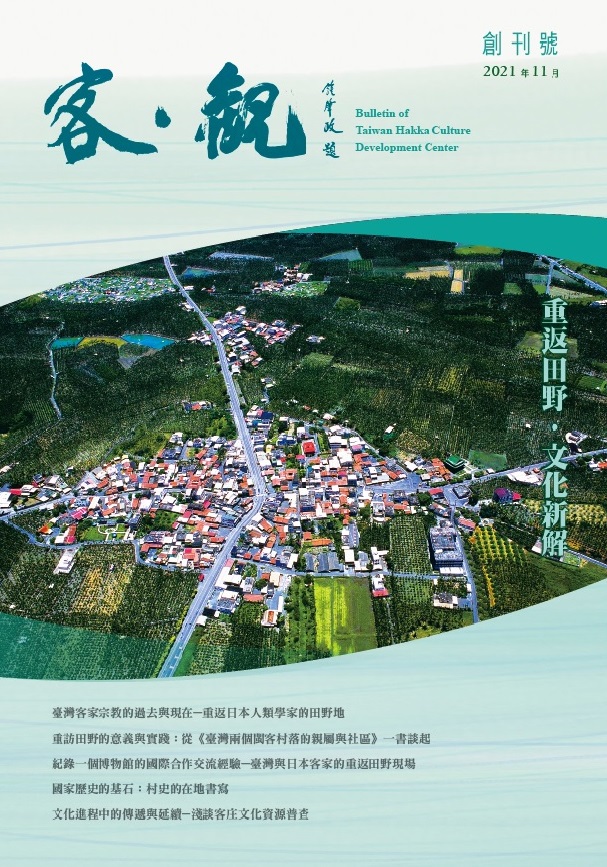
Research & Library
The Bulletin of Taiwan Hakka Culture Development Center (Issue No. 1)
- Source:客家文化發展中心
- Publication Date:2021/11/30
- Last updated:2025/11/08
- Count Views:141

Chief Editor: Lai Yu-ching
Publication Date: November 2021
The Bulletin of Taiwan Hakka Culture Development Center is the first academic periodical published by the Hakka Cultural Development Center. The title “客.觀 (Kè Guān)” carries a dual meaning: first, to observe the Hakka people and neighboring ethnic groups from the perspective of both Taiwan and the global Hakka diaspora; and second, to transcend a single, uniform viewpoint, encouraging observation, interpretation, and reflection on Hakka and non-Hakka cultures from multiple angles.
The Bulletin focuses on the intersection between museum studies and Hakka culture, with each issue presenting a thematic feature that integrates diverse forms of work—field investigations, academic research, collection and exhibition projects, educational programs, and forums—both in Taiwan and abroad. Through observation, reporting, critique, and interpretation, the publication documents and reflects upon local histories and memories, shifting interethnic relations, stories of clans and families, artistic and cultural styles, everyday life, and global connections that together compose the dynamic fabric of Hakka culture.
The title calligraphy of “客.觀” on the cover was personally inscribed by Chung Chao-cheng, revered as the Mother of Taiwanese Literature.
Published semiannually, The Bulletin is organized into three main sections:
1. Special Feature – in-depth essays and interviews on the selected theme;
2. Museo-Hakka – articles exploring Hakka culture through the lens of museums and heritage;
3. New Insights on Hakka Culture – book reviews, field notes, and new research perspectives.
The inaugural issue, themed “Returning to the Field: New Readings of Culture,” revisits the ethnographic fieldwork conducted in Hakka villages of Taiwan by American and Japanese anthropologists between the 1960s and 1980s. It reflects on the meaning of “returning” to earlier field sites, reexamines past studies in anthropology, history, and sociology, and traces key ethnographic data on Hakka society. At the same time, “returning to the field” serves as a reminder to observe contemporary changes in these communities—connecting local traditions with cultural innovation and analyzing the processes of social, political, and environmental transformation.
This theme also underscores the museum’s need for constant reflection and sensitivity in an ever-changing world. Through interdisciplinary collaboration—across history, sociology, geography, and anthropology—the Bulletin seeks to inspire new approaches to research and practice, avoiding the limitations of isolated studies or static temporal frames. For the Liugdui Ecomuseum, grounded in local history and culture, this perspective is especially vital.
Ultimately, the launch of The Bulletin of Taiwan Hakka Culture Development Center aspires to foster diverse interpretations and dialogues in Hakka and ethnic studies, both within Taiwan and across the world.
